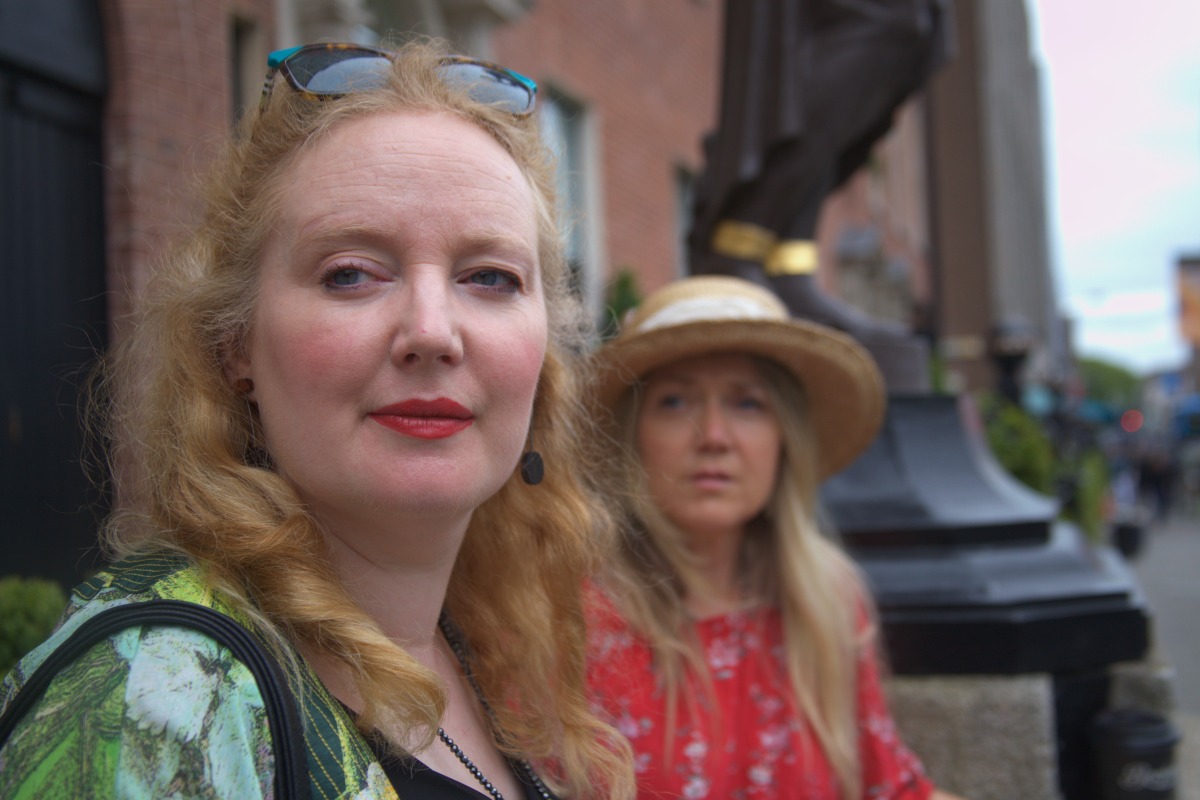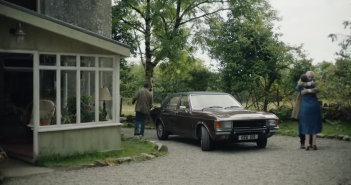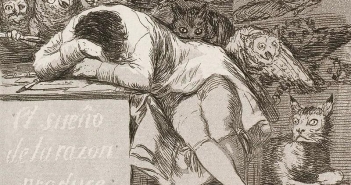There is no fiercer battle than that between sisters. The sibling tension is ever-present in ‘The Battle of Kildare Place’.
This comedic play is a two-hander between two sisters: a corporate older one married with two children, and a ditzy, free-spirited younger one eking out a living as a proprietor of a small flower shop and architectural tour guide.
| ‘The Battle of Kildare Place’
Cast Darina Gallagher Sinead Murphy
Director Costume Design Photography Graphic Design Creative Producer Written by |
Meadhbh Gráinne
Michael James Ford Bairbre Ní Chaoimh Keith Jordan Gavin Doyle Colm Maher Emma Gilleece & Michael James Ford |
The personalities of the women are informed by their namesakes, two formidable Connaught Queens of lore; the real life pirate Queen Gráinne Mhaol, and the warrior Queen Meadhbh from the Táin Bó Cúailnge (Cattle Raid of Cooley).
The play is set in present day Dublin with Gráinne, the elder sister, played by Sinead Murphy, flying in from London for this rendezvous after an absence of three decades to discuss the potential erection of a plaque in honour of their late father.
As he died at the height of Covid-restrictions, Meadhbh, played by Darina Gallagher, feels her father has been cruelly robbed of the send-off he deserved, with only twenty-five mourners allowed at the funeral.
She believes his renown merits the erection a plaque for a lifetime of activism attempting to save Georgian Dublin, including the Battle of Hume Street, which the play pays tribute to in its title. Meadhbh is frozen in a state of unresolved grief with a thirst for justice for her father’s legacy, as witnessed in ‘Electra’ or ‘King Lear’.
Andrea Reynell mourns the loss of numerous Irish historic buildings, and considers how we may better engage with and protect our heritage.https://t.co/dTOJEbINwD@broadsheet_ie @Andrea_Rey48 @ArtsOverBorders @CSBlenner @cathmartingreen @CllrEoinOBroin @RMcGreevy1301 @NMcDevitt
— CassandraVoices (@VoicesCassandra) November 10, 2020
Gráinne implores her sister to separate the legend of the activist from the realities of the absentee father, while pointing out that bad fathering isn’t synonymous with being a bad person.
The play is written by architectural historian Emma Gilleece and actor Michael James Ford, who is also director. Now based in Dublin, Emma grew up in Limerick city and completed a BA in English & History and an MA in History of Art & Architecture, followed by an MSc in Urban & Building Conservation.
Michael was closely involved in the genesis of Walkabout Theatre last year in association with Colm Maher, the creative producer for Bewley’s Café Theatre.
It came about in response to Covid-19 restrictions and the first season featured four new plays presented in historic Dublin locations.
The team of actors, writers and directors relished the challenge of outdoor performance – competing with inclement weather, traffic noise, wildlife, buskers and rogue cyclists. Walkabout enjoyed capacity audiences and popular and critical acclaim and was subsequently nominated for an Irish Times Judges’ Special Award for “returning audiences to live performances outdoors in 2021.”
As another example of how limited circumstances can actually foster creativity, it was Emma’s brainwave to use Kildare Place as the setting on the back of a tour she gave.
“I was invited by the Irish Architecture Foundation to do an twentieth century architectural bus tour, as part of Open House Dublin last October, and my tour had to be along the bus company’s established tour routes with one of these being Kildare Street”, Emma explained.
“My Open House Dublin tour touched on the vulnerability of our twentieth century building stock, and ironically there is currently planning permission sought to demolished Stephen Court on Stephen’s Green by architect Andy Devane which was part of the tour”.
Running parallel to this battle of two sisters exploring unhealed childhood wounds is a debate regarding Georgian Dublin accommodating twentieth century insertions. Was this progress or destruction?
Meadhbh follows in her father’s footsteps taking up the baton for preserving eighteenth and ninetheenth century Dublin, while Gráinne is more forward-looking, arguing that demolition and rebuilding is just part of the life-cycle of a city, asserting the merits of iconic buildings such as Liberty Hall, the former Central Bank and Phibsborough Shopping Centre, amongst a list of familiar divisive buildings.
Neil Burns takes issue with the 'artsy sentimentality' of those objecting to James Joyce's 'Dead House' on Usher's Island being converted into a hostel.https://t.co/d3HPHAckUe@Andrea_Rey48 @FintanOHiggins @CSBlenner @broadsheet_ie @CllrEoinOBroin @wadeinthewate11 @IlsaCarter1
— CassandraVoices (@VoicesCassandra) November 6, 2020
The nineteenth and twentieth century buildings of Kildare Street provide a four-sided stage. The architectural gems the audience are directed to include the Department of Enterprise, Trade and Employment (completed in 1942), the National Museum of Ireland (1890) and Agriculture House (1974).
Being outside makes the audience feel like they are eavesdropping on two sisters meeting on a summer’s afternoon in the city. There are laughs, but also poignant moments where you can feel the actors dive down into a well of decades’ old pain and disappointment. Can these sisters find common ground?
The Battle of Kildare Place runs from 6 -16 July, Wednesday to Saturday at 1pm and 3pm. Tickets cost €15 and booking is at www.bewleyscafetheatre.com/events/the-battle-of-kildare-place.
For enquiries call 086 878 4001.




